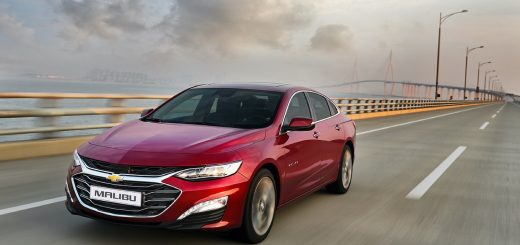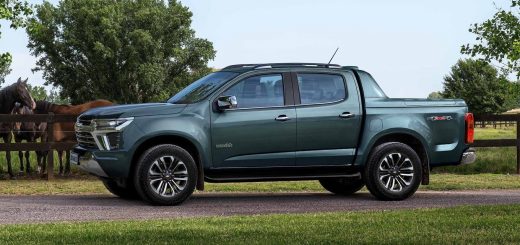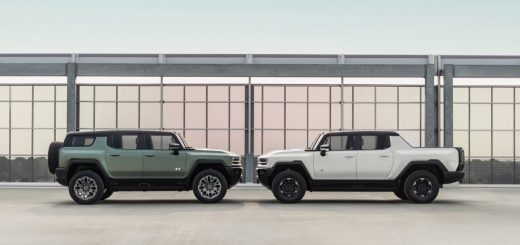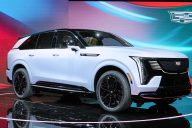As part of its ongoing turnaround strategy, Opel has identified Israel as a market that presents an opportunity to export and sell its cars. And one of the ways in which GM’s European subsidiary is planning on marketing its vehicles in the country is by having members of the Knesset — Israel’s parliament — drive them.
Just recently, Opel has won the open bidding process of the Knesset to be its vehicle fleet supplier, and 50 of the 120 members now have an Insignia as their official car for business travel — with the first 25 cars having just been delivered to parliament representatives in Jerusalem by a group of Opel employees.
“The Israeli market has an important role in our export offensive. The fact that we were able to win over parliament members, a group of important opinion leaders, is impressive confirmation of the success of our brand in Israel,” said Opel Director International Operations Jürgen Keller as the vehicles were delivered “This clearly shows that Opel continues strengthening its successful position in Israel”, he added.
Opel vehicles are currently imported into Israel by the Shlomo Group — Israel’s exclusive Opel importer. The GM subsidiary states that Shlomo currently has eight Opel sales centers and 14 service stations, with the latest sales outlet having opened on April 15, 2013. In 2012, roughly 5,000 new Opels were sold in Israel.
Currently, the following Opels are available for sale in Israel:
- Corsa 5-door
- Astra: 5-door, GTC (3-door), sedan
- Insignia: sedan, 5-door hatchback, Sport Tourer (wagon)
- New Zafira
The GM Authority Take
By enlisting the services of an importer and distributor, it seems that Opel is playing it safe with its newfound sales efforts in Israel… but it could also be a matter of cost-effectiveness — with an importer perhaps being more financially attractive than setting up full-fledged operations in the country. What’s more intriguing to us is whether the members of the Knesset actually paid for their Insignias — or if the automaker provided the vehicles free of charge — as a form of free marketing.
We’ve reached out to Opel for clarification, and will update this page as soon as we hear back.















Comments
5,000 units are really good for such a short time. Volkswagen sold around 9,000 units at the same time in Israel, but it offers more models than Opel, e.g. commercial vehicles. Opel is not only available in Israel since 2011, but the former GM distributors UMI did not promote the brand very well and has focused heavily on Chevrolet than on the Opel. In 2006 and the following years Opel was only represented with the Corsa 5-door and Astra 5-door models in Israel with very small sales. One of the reason why Opel failed in most markets outside of Europe is because of GM distributors which are focused on Chevy but completely forgot Opel. Opel needs its own distributors like in Australia and it works there. In the 90s Opel was also available in Malaysia, Indonesia, Taiwan, Hong Kong, Japan, Thailand and India with around 75,000 sales every year but Japan was the biggest market for them (30,000 units to the best time).
@Opel345 Yupp, 5,000 is respectable, especially when VW has a full-blown (non-3rd-party distributor) presence in Israel (as far as I know). And you’re absolutely correct — Opel was in Israel before 2011; I’ve changed the article to better reflect that.
To me, though, the question is whether Opel will ever launch in a full-scale way in Israel — as in not relying on a third party importer/distributor. That will show that Opel is truly serious about the market… we’ll see 🙂
Bribes? 🙂
The Parliament paid for them.
30,000 units! Get back into Japan.
Here are the sales figures of Opel in Japan from 1983 to 2007. I am wondering why Alex did not mention Opel in the last article which was about GM in Japan. However, as you can see Opel was not bad outside of Europe. If you want to see another bad example of Opel distribution then take a look at GM South Africa and GM Egypt. In South Africa the Opel dealerships are outdated with bad service and marketing, and there is no advertising on TV. Who wants to buy an Astra OPC between Isuzu trucks and Chevy Utilities? Opel Australia Pty Ltd, which is only responsible for Opel, is doing a great job, e.g. they brought the Opel OPC models to Australia and the Mokka, Zafira Tourer and maby the Cascada will arrive this year yet. Opel Australia will sell more Opel cars than GM South Africa this year, but Opel is since the 60s or 70s available in SA.
1983 – 24 units
1984 – 70 units
1985 – 111 units
1986 – 157 units
1987 – 292 units
1988 – 449 units
1989 – 2,643 units
1990 – 4,021 units
1991 – 2,725 units
1992 – 1,371 units
1993 – 17,042 units
1994 – 19,145 units
1995 – 32,493 units
1996 – 38,339 units
1997 – 34,397 units
1998 – 24,223 units
1999 – 19,433 units
2000 – 15,318 units
2001 – 12,626 units
2002 – 7,846 units
2003 – 3,890 units
2004 – 1,694 units
2005 – 1,800
2006 – 803 units
2007 – 14 units
Interesting curve of sales figures in Japan.
Any reasoning about the decline after 1996?
What had the severing of capital ties with Isuzu and with Suzuki to do with it? What other factors?
Das weiß ich leider nicht:D
The only Asian markets, where it makes sense to export Opel cars from Europe are countries such as Hong Kong, Malaysia, Taiwan, Japan, (China), South Korea and Singapore. In India or Thailand you have to produce locally.
If I’m not mistaken Opel is already operating in China.
Yes, but.
A big but: GM sells Opel branded cars in China only as imports, and with a limited model range: Insignia (Buick Regal) station wagon, Astra 3-door hatch, current Zafira, and the Antara SUV (imported from ROK [Republic of Korea]).
Last year, GM sold ~4500 Opel cars in China.
A sale is a sale.
Opel makes United States push becomes overnight success with huge Astra sales…
Until 2008 Opel also saled cars in India. Than it was replaced completely by Chevrolet dealers (it was a deciion of the GM administration to place Opel as a European market and to push Chevrolet and Saab instead…an absolute wrong decision)
It would be very important to Opel to reenter in such a growing market and sale more cars beyond Europe.